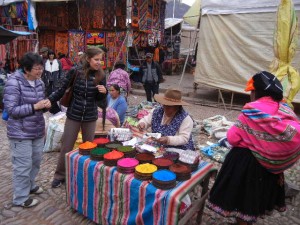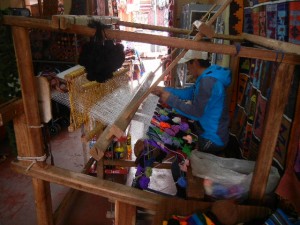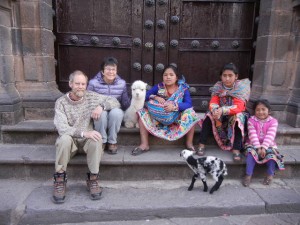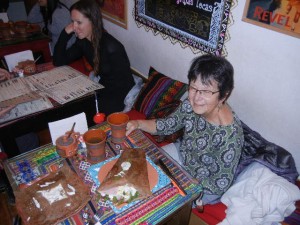12 May: From Machu Picchu Town, we traveled by train and van up along the Vilcanota River to another archaeologically important town within the Sacred Valley, Pisac. From our Airbnb we walked the kilometer into the center of town and went to the fresh market for some fruit and veggies.
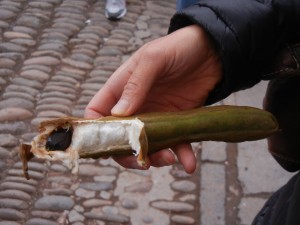
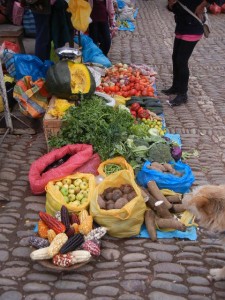
13 May: A long taxi ride took us to the end of an unpaved road up a valley to a dam at a high elevation laguna (lake). From there we hiked on a rough trail up past that laguna and up above a second laguna to a ridge where we had a distant view of a snow covered mountain. We were in the puna, the high elevation zone where grasses and occasional wildflowers grow, but but no trees. Peru is a little south of the equator, and basically has two seasons: the rainy season (mainly January-March) and the dry season (the rest of the year), with relatively little seasonal change in temperature or day length. We descended to the upper end of the higher laguna and found a trail that led us back around the far side of both lagunas to our starting point. All along our hike we could see rough terracing and isolated steep farm fields (mainly for potatoes).
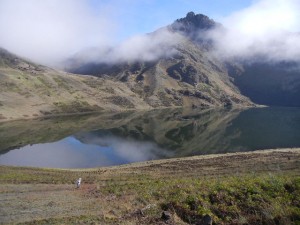
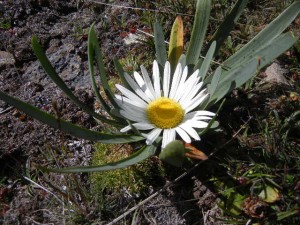
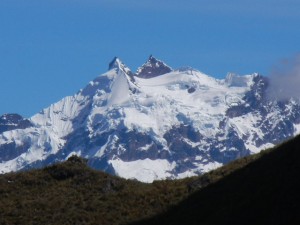
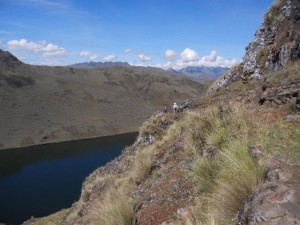
We walked down the road, past green fertile land in the valley below the dam where there are houses, farm fields, and grazing livestock (alpacas, sheep, horses, burros, and cows). At a third laguna lower down, we stopped to eat lunch and wait for our taxi to return. Four women were weaving and selling their handiwork there, and one demonstrated to us how they weave narrow belts and straps in colorful traditional patterns. Our taxi then arrived and took us to the upper end of the Pisa archaeological site. From there we hiked the trails among the ruins and down into the town below. Similar to other ruins we had visited, those at Pisac were situated high on a ridge above the town and demonstrated the high degree of masonry characteristic of the Inca period. The steep hillsides were terraced, and the buildings on the top of the ridge included a temple with an astronomical alignment. We followed a trail from the ruins down the steep ridge into the town below, leading into the market section of the old part of town.
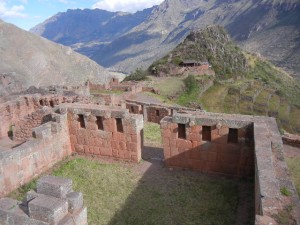
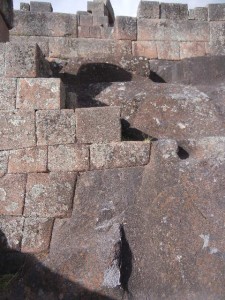
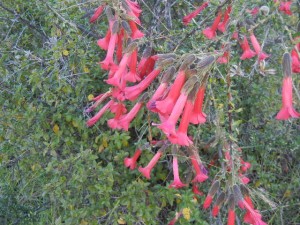
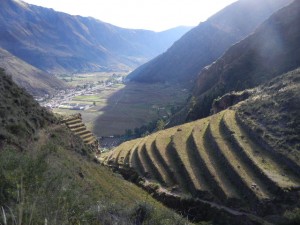
14 May: We devoted our second morning in Pisac to exploring the market stalls to buy some souvenirs and gifts before traveling back to Cusco by van. In Cusco we visited the museum at the Qorikancha. This was an important Incan temple until the Spanish destroyed most of it and built a cathedral and convent on its foundations. The museum next to the site had detailed displays explaining Incan beliefs and customs and a timeline along one wall showing much earlier Peruvian cultures known through artifacts uncovered by archaeologists. One of the museum staff members gave us a personal tour, explaining the symbolism behind many of the customs. After dark, Abby took us to dinner at a great little French quiche restaurant she had discovered previously.
